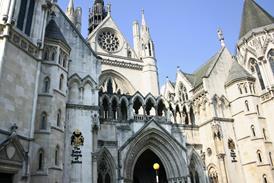A very wide approach to the inspection of confidential material? The court has ruled that the disclosure of confidential Serious Fraud Office and client documents to dispose fairly of the issues overweighed any public interest in keeping them witheld.
What’s happened?
The claimant companies were involved in a property development in the Carribean. The construction work was significantly delayed and the scheme was also investigated by the Serious Fraud Office (SFO).
The claimants brought a claim against the defendant, who provided accountancy and auditing services. The claimants alleged that that the defendant was responsible for the delays and costs overruns on the project. It was also alleged that the defendant had acted in conflict of interest by giving financial advice to both the claimants and the main contractor, whose conduct was under investigation for fraud.
Why is it important?
The court was asked to deal with a number of case management issues which arose in the case. In particular, the defendant sought to withhold two categories of documents from disclosure:
(1) the documents created as a result of the SFO investigation; and
(2) confidential documents relating to third-party clients.
The court considered CPR 31.19 and refused the defendant’s application to withhold either category.
How does this fit into existing law and practice?
Under CPR 31.19, any person may apply, without notice, for an order permitting them to withhold disclosure of a document on the ground that disclosure would damage the public interest.
Mr Justice Coulson outlined that, when considering CPR 31.19, the court had to conduct a balancing exercise. The ultimate test was whether disclosure and inspection was necessary to dispose fairly of the proceedings.
In the present case, there was a clear public interest in ensuring the SFO was able to conduct investigations on a confidential basis. However, the administration of justice and the need to dispose fairly of the issues outweighed any public interest in the withholding of the documents.
In respect of the documents containing confidential information relating to third-party clients, the court ordered that they should also be disclosed. A number of the documents were highly relevant to the dispute, and if they were not disclosed there was a real risk that the critical issues between the parties would not be determined fairly, or at all.
In relation to the rest of the documents, these should be disclosed for pragmatic reasons. The parties had undertaken disclosure on the basis of electronic word searches based on keywords, without an intervening and costly review for relevance. If the remaining documents related to other clients were irrelevant, then that would be the end of the matter.
How does this case affect practitioners?
The judgment should be compared with Tchenguiz v Director of the Serious Fraud Office [2014] EWCA Civ 1409. In Tchenguiz, the court took the opposite view in respect of confidential documents which had been prepared during an SFO investigation.
It is clear that when considering CPR 31.19, the decisions reached are highly fact-specific.
What should I be doing differently as a result?
When considering whether such an application is likely to succeed, litigators should undertake a comprehensive and detailed analysis of the particular risks posed by disclosure of the documents and the benefits of disclosure in respect of the litigation. Parties must be prepared to offer cogent and considered reasons which sway the balance in favour of their position.
Disclaimer
While we try to ensure the accuracy of the information provided, it does not constitute legal advice, and cannot be relied upon as such. The Law Society does not accept any responsibility for liabilities arising as a result of reliance upon the information given.






















